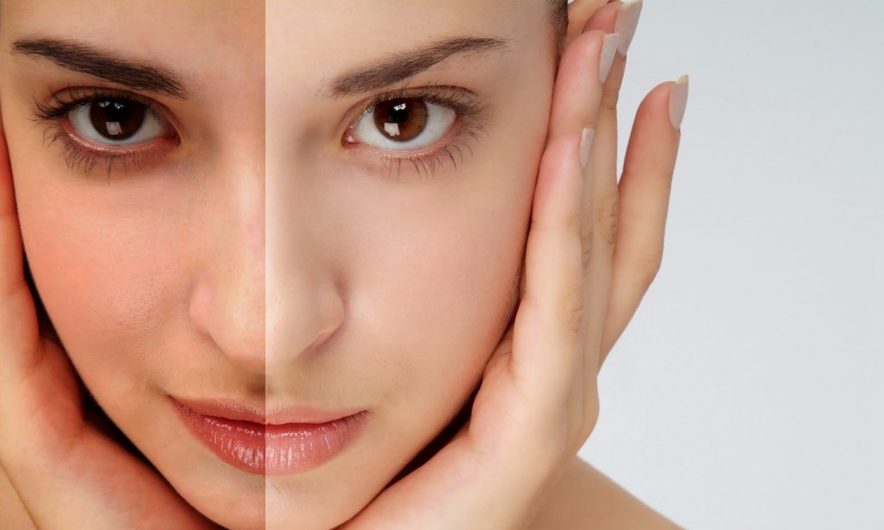Tips For Natural Ethnic Skin Care:
Globally, the demand for an assortment of products relevant to the needs of a multicultural skincare market is finally being addressed and even major brands are at last filling the consumer demand for products that address the particular needs of women and men of across ethnic groups for both skin and hair care products.
Some of the most common complaints associated with ethnic skin include acne, eczema and ingrown hairs and while this shows some correlation between the issues that ethnic skin experiences and that of Caucasians on a day to day basis our needs may vary immensely.
For instance, ethnic skin has specific needs to do with achieving an even skin tone and the removal of dark spots. Oil producing glands are also different in pigmented skin which is associated with heightened levels of oiliness and dryness.
Ethnic consumers are also traditionally more concerned with natural and organic ingredients than other groups, often using ingredients such as cocoa butter and olive oil to moisturize and protecting the skin.
So, let’s take a more in-depth look at natural ethnic skin care and what you should know.
1. Chemical Peels
Having ethnic skin or a darker skin tone is descriptive of many skin colours across a multitude of races. Those with ethnic skin generally enjoy substantial protection against some of the signs of ageing because of increased melanin production. However, there are melanin related skin issues which are of concern to darker skinned men and women which may be resolved through the process of the Chemical peel.
For instance, there are various skin problems that can cause excess melanin production, creating dark patches that, in the worst cases, may be permanent if left untreated.
The first chemical peels are believed to have been developed in ancient Egypt using animal oils, salt, alabaster and sour milk to improve the look, tone and texture of the skin. Today’s body of knowledge around chemical peeling is the result of centuries of research.
The list of agents for chemical peeling is extensive but there are some natural and effective peels such as the marine vitamin and mineral based Deep Sea Peel, a medium depth peel suitable for ethnic skin care needs and deals with concerns such as melasma which, though associated with a fluctuation of hormones in all ethnicities, occurs more often in ethnic skin.
Chemical peels for ethnic skin types can deal with a myriad of other issues including acne, post-inflammatory hyperpigmentation and scarring.
However, it’s important to note that some ethnicities may respond unpredictably to chemical peeling and familiarity with the properties each peeling agent used is critical, as is finding a reputable skin care professional, which we highly recommended. Chemical peeling can treat numerous pigmentary and scarring disorders found predominantly in dark skin tones and researching the latest techniques should lead to great results.
While Caucasian women typically seek chemical peels for anti ageing, skin protection and moisturizing benefits, women of colour will more often look for products that will address hyperpigmentation and prevent blemishes or severe dryness.
Chemical peels, microdermabrasion, enzymes and proper at-home skin-care products are great treatment options for darker skin tones but no matter what your skin colour, it’s important to start conservatively with any skin-care treatment or product and increase the strength gradually.
It pays to remember, that if you go the cosmetic route to deal with any skin issues, when not properly administered, any treatment that injures the skin, such as laser surgery, dermabrasion or wrinkle-filling injections like Botox, have the potential to cause pigmentation problems.
2. Sun Safe
When summer heats up, the palest among us reach for the highest protection sunscreen possible. However, the myth that darker-skinned people don’t need to wear sunscreen seems to endure and many still don’t realize just how damaging the sun’s rays are even to the darkest skin tone.
The misconception that ethnic skin does not burn is very misguided and is one of the main reasons that many delayed diagnoses of skin cancer often results in poor prognosis.
In fact, statistically, the people that are most likely to die from melanoma are ethnic because there is less chance that an issue will be picked up on quickly. It certainly pays to educate yourself about the dangers of sun damage and have an annual professional skin examination.
Another important thing to remember is that when it comes to sun protection, not all are suitable for the masses, though in recent years there have been some amazing developments in sun protection developed specifically for the needs of darker skin.
3. Wrinkles
Fair skinned women may need to look to anti-ageing treatments a decade or two earlier than darker skinned women but that doesn’t mean ethnic skin is immune to ageing.
Obviously, having darker skin protects you from age-related skin damage because of the high levels of melanin but doesn’t prevent it completely. On the other hand, darker skinned women are more likely to seek treatment for an uneven skin tone, which can only really be prevented through the daily use of sunscreen. So, while most of the technology today is focused on anti-ageing aimed at light skin tones, darker skinned women are more concerned about the clarity of their skin.
That being said, it is not completely true to that ethnic skin never wrinkles and while some visible sign of ageing may be a delay, others may not. For example, ethnic skin is also more prone to age spots and to harmless brown growths known as seborrheic keratosis.
In effect, while the wrinkles may stay away for a decade or two longer, people with darker skin may find there are other issues, such as saggy jowls, that present as they get older and the truth is that none of us can prevent ageing completely. On a brighter note, experts recommend the daily use of sunscreen and good hydration across all ethnicities as a simple and effective way to at least delay those signs of ageing.
4. Oily Skin, dry skin
While we absolutely love adding those natural oils to our hair, our ethnic skin seems to produce an excess of natural oil, which can lead to all sorts of skin problems, including clogged pores and excessively oily or dry complexions.
At the very least, too much sebum, which is caused by the skin attempting to protect itself from environmental factors, ranging from extreme weather to air pollution, means an excessively shiny complexion.
Interestingly there may be a way to control this by watching what we eat. By increasing our consumption of fruits and vegetables, plus making sure we consume heaps of water and cutting down on fats, we could have a more flawless complexion in no time.
5. All Skins
No matter what the colour, all skin is vulnerable to environmental factors and prone to issues such as blemishes and scars. Though there are some distinctions, we all need to take care of the health and aesthetic of our complexion. And the simplest and most effective way to do do this, regardless of your skin tone, is through a healthy, balanced diet, exercise, sun protection and a really great skin care specialist.
Hope you enjoy this blog “natural ethnic skin care” Please share your experiences with us!
Recommended Article For You:











Comments are closed.